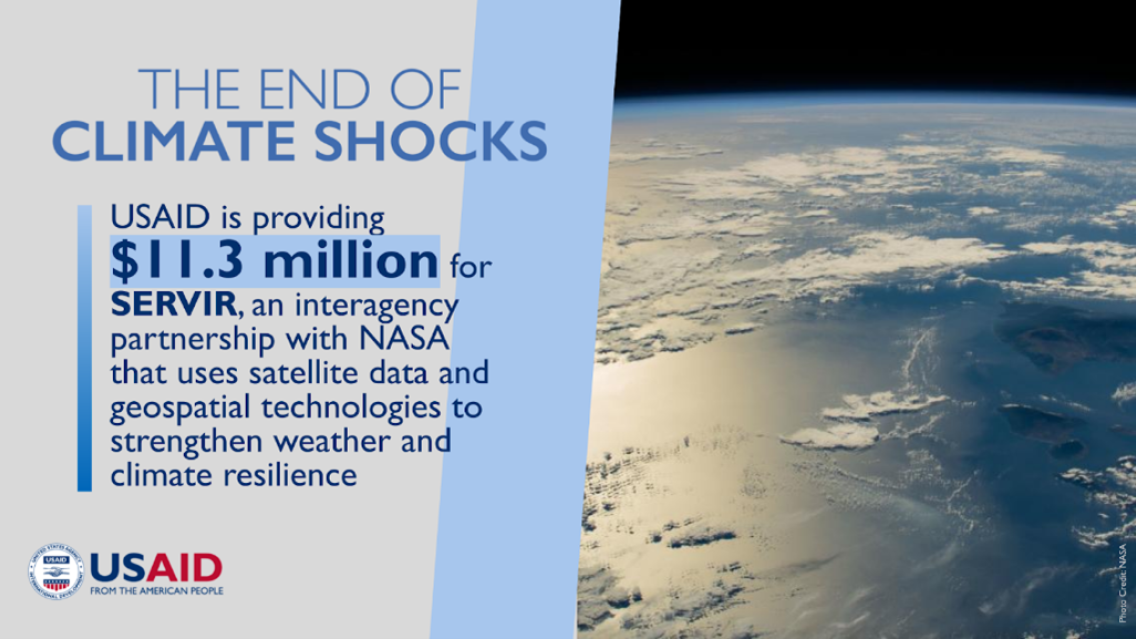USAID Administrator highlights SERVIR in speech on “The End of Climate Shocks”

On January 30, 2024 Administrator Samantha Power set out a vision for how to spur progress on building resilience and announced new initiatives to accelerate support, and to expand programs that contribute to the President’s Emergency Plan for Adaptation and Resilience (PREPARE), aimed at preparing communities and building their resilience to these perpetual and deadly climate “shocks.” Administrator Power called for global action to spur innovation on affordable solutions by applying the lessons learned from the transition to renewable energy and to dramatically scale investments in the Global South.
In a speech at the Johns Hopkins Bloomberg Center in Washington, DC, Administrator Power announced $22.4 million to expand existing programs including:
$11.3 million towards SERVIR, a USAID-NASA partnership that uses satellite and geospatial technologies to provide governments, institutions, and communities data on changing weather patterns and impending climate shocks. This data helps communities prepare for droughts, floods, heatwaves, and more. SERVIR has strengthened climate resilience, agriculture and food security, water security, ecosystems, carbon management, and efforts to improve air quality in countries across Asia, Africa, and Latin America.
In her remarks, the Administrator highlighted SERVIR’s work as an example:
…nearly two decades ago, USAID teamed up with NASA to create a program called SERVIR, which helps countries understand the very particular risks that extreme weather variability poses for them. Today, SERVIR uses satellite imagery across 50 countries to deliver advanced projections and real-time data on everything from floods to forest fires to potential breeding grounds for crop-destroying locusts. And it offers tools to predict longer-term trends in things like crop yields and droughts.
This kind of forecasting can guide immediate, lifesaving action. In Malawi, for instance, SERVIR worked with communities to integrate satellite data into their local flood early warning systems. Recently in January 2022, two cyclones, Ana and Gombe, hit Malawi. SERVIR had supported alert systems, those alert systems then sent texts and emails to residents in affected communities with more than two weeks of warning. People were able to evacuate and take their valuables with them. Malawi’s Department of Disaster Management Affairs announced that early action prompted by these alerts prevented $40 million in monetary losses and, even more importantly, saved many, many lives.
Today, I can announce that USAID is going to commit an additional $11 million, this year, to SERVIR. This data will not just help guide immediate lifesaving action, but it will forecast long-term needs to help countries prioritize solutions – an essential effort as countries now draft their National Adaptation Plans. USAID is supporting our partners in drafting and implementing these Plans – and factoring their resilience needs into all budget and policy work, from infrastructure planning to capital budgets.

